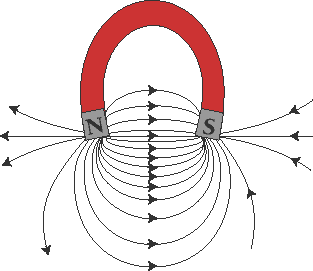 |
| “I’m still running away” by Flickr user Vincepal, used under a Creative CommonsAttribution-Noncommercial-Share Alike 2.0 license. |
I have noticed a shift in my Facebook news feed: there are now fewer ridiculous rants against Obama and pro-gun-rights posts, fewer Creationists going on with spurious proofs of their improvable ideas, and thankfully fewer racists with equally implausible, unsupportable ideas.
I wonder why
The only reason I can figure is that the creationists, gun advocates and racists who “friended” and followed me have since unfriended and unfollowed me. There probably is a way to see who has unfriended you, but I don’t bother with that. I’ll just go with noticing the absence of names and faces that I used to see quite regularly.
One is a Facebook Friend of a Friend who called me an “asshole” because I questioned his argument that Obama sucks. I asked for some solid examples of how Obama’s policies had made their lives worse in some concrete way.
Another right-winger dropped me after I questioned logical holes in his statements and arguments about gun rights and foreign policy. Maybe he just got tired of being shot down so many times. But even Snoopy gets back in the air after being shot down by the Red Baron.
I don’t see many creationists anymore, either. There’s one I haven’t seen after she asserted “it takes a lot more faith to believe in evolution than in creation.” I suggested she look up “faith” in a dictionary, and then open another book that’s not the bible.
(By the way, Oxford defines it as “firm belief, esp. without logical proof.”)
Okay, maybe my retort was kind of snarky, but it’s not insulting.
I miss those people—and not just because they’re so easy
I think one of the purposes of Facebook was to engage in a healthy debate. Sure, it’s also a great way to catch up with old friends and far-flung family, to coordinate group activities and to share cool photographs, but I also enjoy respectful debates. I point out logical holes, question assumptions and conclusions, and have been questioned and corrected myself. I accepted corrections when I made errors, and I never sank to the level of insults. I never swore at people (okay, I used a few salty words to describe things and actions, but never the people I was arguing with).
For the most part, I did not get a lot of abuse. As I said, one person called me an “asshole” for questioning his argument about Obama. Another insulted me for arguing for higher corporate taxes and against the idea that corporations should be able to spend on political communications without limit. A number of people called me a “liberal” as if it were insulting. I told a few of them to look up the word, too, and once got insulted for explaining that the understanding of the word “liberal” in the US is different from its original political meaning, and that in Europe, neo-liberal is equivalent to neo-conservative in the US. I don’t understand why that was threatening or problematic, but it did bother some people.
But the people who were most committed to the right-wing side of many debates—guns, abortion, evolution, taxation, health care—have run away.
What are they afraid of?
I’m not going to shy away from expressing myself. I am a writer, after all. If someone disagrees with me, that’s fine. I encourage that.
Bringing poles closer
 |
| Image courtesy Dark Matters a Lot |
We need to be able to discuss our differences respectfully. I don’t delude myself that I’ll ever change anyone’s deepest beliefs, but if we don’t share opposing ideas, we only increase the polarization that is already growing in the world. Extremism is growing on all sides of every debate, and we can see this with ISIS/ISIL, Christian/creationist groups, the Tea Party, resurgent communism in Russia. And that kind of extremism doesn’t make the world a better place.
So come back, right wing! Engage me. If you think I’m wrong, let me know. Just remember my rule of engagement: if you use personal insults, you lose.

